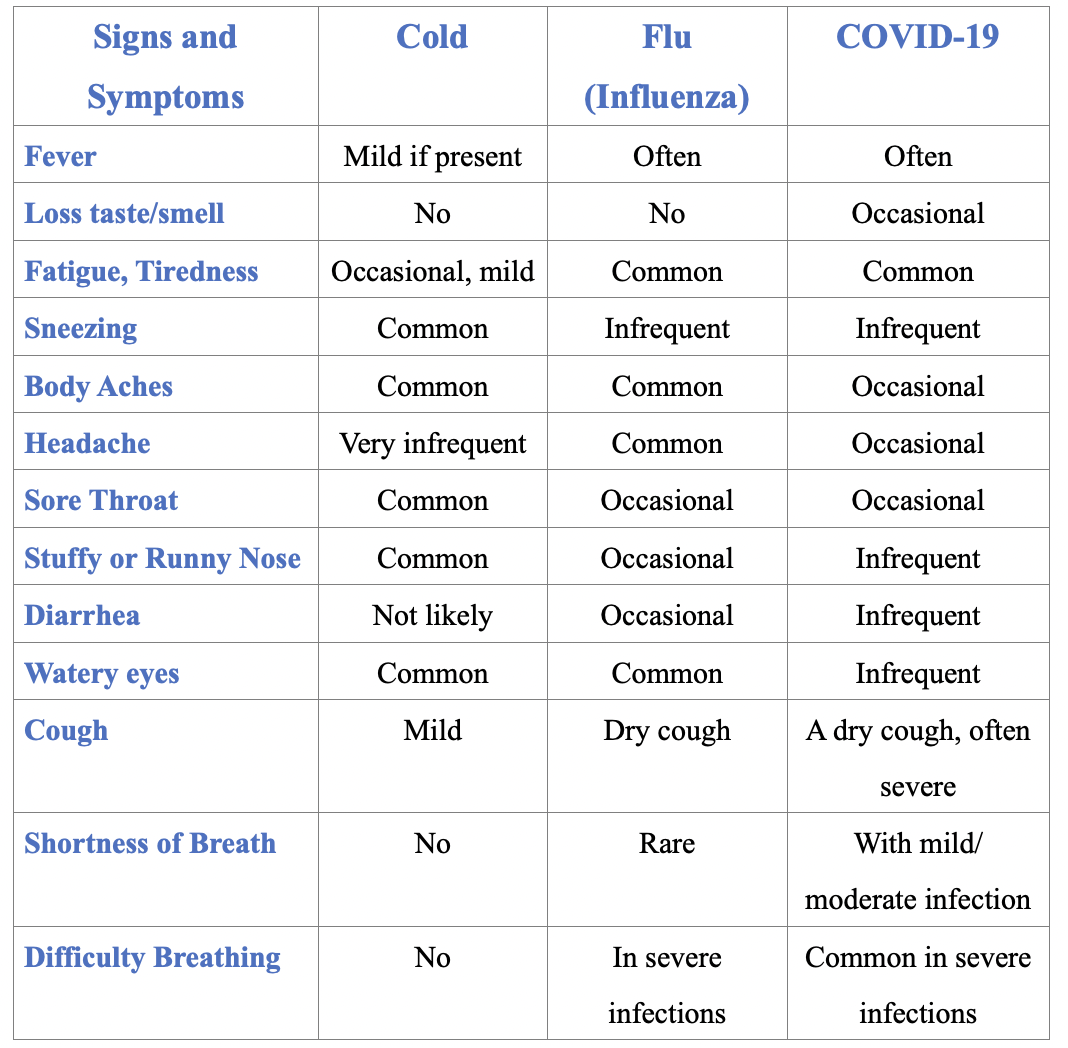|
2020 has been an unprecedented year. The virus continues to spread at a slow burn; occasional lockdowns are now normal. We believe an increase in the transmission is likely to happen as the weather gets colder. COVID-19 is likely to have a seasonal oscillation leading to more winter outbreaks like many human respiratory viruses such as influenza. Peoples' immunity are also generally lower and they are more likely to remain indoors in winter, where transmission of the virus through droplets can be a greater risk. The common differences between Cold, Flu, or COVID-19: However, with the winter period approaching patients may get flu-like symptoms and be worried if it is a cold, flu, or COVID-19. Some of the symptoms of flu and COVID-19 are similar, and therefore it may be hard to tell the difference between them based on symptoms alone, and testing may help confirm a diagnosis. Flu and COVID-19 share many characteristics, but there are some key differences between the two. While more is learned every day, there is still a lot that is unknown about COVID-19 and the virus that causes it. The following table compares all 3 conditions, given the best available information to date.
The risk of complications for healthy children is higher for flu compared to COVID-19. However, infants and children with underlying medical conditions are at increased risk for both flu and COVID-19. Doctors diagnose flu based on clinical signs and readily available laboratory tests. Flu vaccine will provide 70% protection against 4 predicated strains this year. Medication to treat flu is available.
If a person has COVID-19, it could take them longer to develop symptoms than if they had flu. COVID-19's main symptoms are headache, fatigue, fever and mild to severe cough. From the current data we have we know that symptoms can be very similar to flu and there are even differences in the symptoms suffered between age groups. The standard high temperature, continuous cough and loss of taste and smell may not appear for those aged below 18 and above 65. You don't see (loss of taste and smell) in older people and in kids at all. Despite scientists around the world working at lighting speed to produce a vaccine, currently there is no vaccine to prevent COVID-19 or effective treatment for COVID-19. COVID-19 TEST: A Molecular Test (Sputum test) The molecular test is also known as a polymerase chain reaction test (PCR). This detects the virus's genetic material that triggers COVID-19. It involves collecting an early morning sputum sample and is the most commonly performed test in Hong Kong. A nasopharyngeal swab can also be done. Again, this is a COVID-19 PCR test however it involves swabbing the inside of your nose or throat. It is usually done in hospital where full PPE is worn. Blood Test (Serology test) This tests for antibodies in your blood. A few days or weeks after you are infected, they are produced in the body. There are two different types of antibodies. One which informs us if you currently have the infection IgM and one which indicates if you've been infected in the past with conditions, COVID-19 IgG. This test has a lower accuracy rate. Commercially available test relies on picking up these antibodies in your blood. Are there any tests to distinguish Cold, Flu or COVID-19? A doctor can usually make a diagnosis based on history taking, examination, looking at vital statistics and with some test results. We can then prescribe some medication for someone to pick up on your behalf to ease your symptoms or prescribe specific medicine for influenzas. In Hong Kong at present, all positive COVID-19 PCR tests are reported to public health department which would warrant compulsory hospital admission. The 2020/2021 flu vaccine is now available in the clinic and with COVID-19 still in circulation - it is even more important this year to have it. There is an anticipation that there may be a worldwide shortage of flu vaccine this year as well. In conclusion: We conclude by reiterating a few basic safety measures again to protect you and your family:
Stay safe. |
Latest NewsCOVID-19 HK vaccination information Archives
November 2022
Categories |

 RSS Feed
RSS Feed